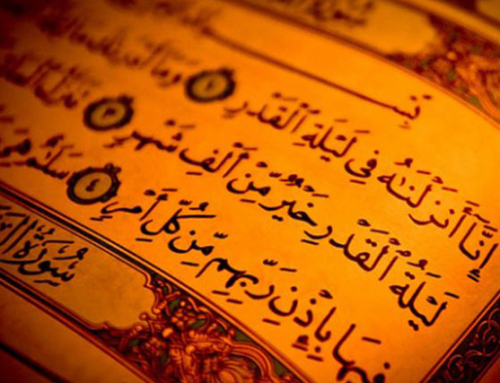Yassine Hicham
June 24, 2016
Fasting is among the most common of religious practices. Native Americans practiced ritual fasting: Lakota braves fasted four consecutive days while wandering in the wilderness, seeking communion with Wakantanka, their Supreme Being. Roman Catholics forego meat every Friday. Jews fast annually on Yom Kippur, the Day of Atonement. Fasting is not only a contemporary near-universal religious practice but also has strong historical roots. Ancient Egyptians and Babylonians fasted. (1) The mystery cults of Ancient Greece, as well as the Pythagoreans fasted. Hindus, Jains, and Buddhists fast (Buddhist monks eat one small daily meal, practicing a lifelong form of fasting). Furthermore, J.A. MacCulloch identified several purposes underlying fasting rituals among the various religions: marking entrance into a new stage of life, as an act of mourning, as a rite of preparation, as a rite of formal initiation, as part of a magic ritual, as an act of penitence, and as part of a formal program of self-denial, or asceticism. (2) Finally, it is conceivable that millions of people around the globe are fasting in one way or another on any given day. It should come as little surprise then that historical and contemporary fasting practices and objectives are parallel, or at least strikingly similar, among the world’s religions. Islam, like many other religions, advocates fasting as a means to the attainment of virtue and spiritual enlightenment.
The prophet of Islam –God bless him and grant him peace– has said, “When Ramadan begins, the gates of heaven open, the gates of hell are closed and the demons are chained up.” This hadith suggests three areas of spiritual benefit associated with fasting. First, fasting opens the “gates of heaven.” The believing Muslim, utilizing the fast as a tool of sanctification, attempts to open the windows of revelation and spiritual enlightenment. Fasting, additionally, strengthens personal commitment to God’s work. It also provides access to divine grace and guidance. Second, the “gates of hell are closed.” The gates of hell represent in Islam the overall societal influence of sin and the effects of material deprivation manifest throughout the world. The fasting believer comes to understand the pains of hunger and want, promoting a spirit of empathetic generosity. Fasting as a community of the faithful, a Muslim practice during the month of Ramadan, promotes an egalitarian spirit since all members are reduced to dependence upon God, no matter one’s station in life. Third, the demons inherent in mankind’s “animal appetites” are chained. Fasting is therefore also a time of introspection and self-evaluation, a time for repentance. The appetites of man are put off for a season in an effort to eventually master those desires and passions that lead to sin. Muslim believers are taught not only to temper the urges of man but also are encouraged to speak well of each other and to share their material means generously. In this way, the temptations of the flesh are gradually replaced by virtues. Selfishness and backbiting may be thus transformed into generosity and honest speech. Self-denial in Islam is coupled with spiritual satiety. Consequently, chaining one’s personal demons hopefully leads to the liberation of one’s soul.
The annual Muslim fast, practiced during the ninth month (Ramadan), is required of all believers and lasts through the entire month. Muslims also fast at other times throughout the year. Any spiritual exercise requiring this level of devotion must be viewed a central practice and tenet of faith that assists in overall moral and spiritual development. Islam therefore links fasting to other spiritual practices, such as Qur’an reading, in order that the fast may be whole, or that a believer’s “joy may be full.” Fasting is more than merely foregoing food and water. This is the central spiritual aspect of fasting in Islam. Otherwise, “how many fasters there are for whom only hunger and thirst are the results of their fast”; such a fast in Islam is essentially all form, but without substance.
For those unfamiliar with the spiritual objectives inherent in Muslim fasts, the ritual may seem like little more than self-starvation. An examination of the traditional academic treatment of fasting illustrates this. Scholars of comparative religion classify rituals according to their assumed functions: those that “fill” (plerotic rites) and those that “empty” (kenotic rites). (3) Fasting is commonly viewed as primarily kenotic, a conclusion that focuses upon ritual self-denial. Within Christianity, Judaism and Islam, however, fasting has concomitant plerotic qualities, since it is also a method of filling oneself with spiritual strength. The Islamic cycle of fasting during daylight hours, and eating a modest meal at night, combines a sense of material need with spiritual satiety. It joins meekness with profound gratitude toward the Divine Provider. Each twenty-four hour period of sincere fasting is essentially the spiritual union of plerosis and kenosis.
Fasting in Islam is intended to be much more than an exercise in self-mortification. God the Almighty has decreed to Muslims that fasting is more than mastering the carnal “difficulties,” or physical obstacles, presented by abstention. Fasting is, instead, a path to spiritual realization, to reconciliation, and to genuine enlightenment, opening up a vision of God and community bound together through humble charity and generosity. Sawm is associated with repentance. It is essential to the worship of God. Sawm is a key element in the pursuit of personal sanctification. Sawm cultivates godliness within the believer. It engenders compassion toward the indigent. It encourages generosity, to give to others freely from what God has given to all. Sawm is also linked to the personal perfection of virtues, in addition to temperance, or self-control. Sawm is the primary means of attaining taqwaa (“piety, devoutness or godliness”). God has declared: “Fasting is for Me and I will grant a reward; and a virtue brings reward ten times like it.” The Arabic word taqwaa is taken from a verb meaning “to safeguard, shelter, or defend.” Waqin, another form of the same verb, signifies “armor.” The prophet –God bless him and grant him peace– has made the relationship between sawm and taqwaa explicit: “Fasting is an armor with which one protects oneself.” Sawm and taqwaa interact synergistically to produce a condition approximating godliness or piety: the believer is emptied of the “world” while simultaneously fashioning spiritual armor as a shield against worldly influences. This armor provides spiritual fortitude, whereby the believer can withstand temptations of the flesh. Sawm should therefore be practiced in association with other spiritual activities intended to perfect taqwaa. For example, God has prescribed the month-long fast of Ramadan in order to perfect such virtues as gratitude:
Ramadan is the month… every one of you should spend in fasting…to glorify God, that perchance ye may be grateful. (Qur’an 2: 185)
References
| ↑1 | Rosemary Rader. “Fasting.” The Encyclopedia of Religion. Mircea Eliade, ed. Vol. 5. (New York: Macmillan Publishing Company, 1987), 286-290. |
|---|---|
| ↑2 | J. A. MacCulloch. “Fasting.” Encyclopedia of Religion and Ethics. James Hastings, ed. Vol. 5. (New York: Charles Scribner and Sons, 1955), 750-765 |
| ↑3 | Frederick M. Denny. An Introduction to Islam, 2nd ed. (New York: Macmillan Publishing Company, 1994), 11. |

















